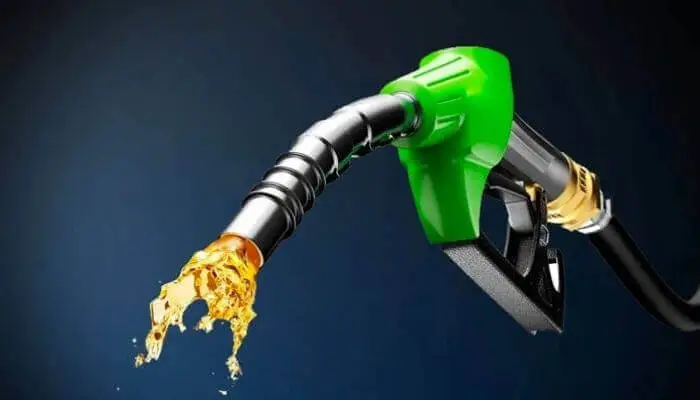The high cost of diesel in Nigeria is driving up the demand for petrol generators by small businesses and households that are increasingly seeing subsidised petrol as a cheaper alternative, BusinessDay’s enquiries show.
A survey across major generator markets in Lagos revealed a surge in the demand for higher-capacity petrol generators within the last two months when diesel prices went through the roof.
Businesses, from hotels to fast food outlets, even petrol stations, that need constant electricity are switching from diesel-powered generators to cut costs as they see no immediate solution to the soaring cost of diesel.
“Ever since the high cost of diesel, the demand for petrol generators has increased by over 70 percent, more than usual in my store, especially for those within the range 6 kilovolt-amperes (kVA)-10kVA,” Obijindu Chukwuma, owner of Chus Best Electronic Worldwide Limited, said.
Bonachristus Izuchukwu, who runs Bonachristub International Limited, said there was a surge in demand for petrol generators, especially from hotels and filling stations. “It went up by more than 100 percent in one month.
”Half of the respondents to BusinessDay’s survey reported over a 100 percent increase in the demand for petrol generators.
Diesel prices are deregulated in Nigeria and have risen from about N288 per litre in January to over N700 by the end of March, following Russia’s war against Ukraine.
Diesel stocks were already tight globally when Russia invaded Ukraine and the West responded with sanctions that, though not targeting its energy industry, had a crippling effect all the same.
Commodity traders were shunning Russian diesel because of the sanctions as well as payment headaches and transportation challenges as many European ports have banned Russian vessels from docking. These actions have a ripple effect across the world and have affected Nigeria too.
The spike in diesel prices is affecting businesses in terms of operations and sales, especially for manufacturers who are heavy users of diesel.
Most of them have either managed their diesel consumption in order to cope with the high cost by reducing their hours of operations or stopped production.
Jenniez School of African Interior Design currently has two generators – a diesel-powered generator for its factory and a petrol generator for the school.
Memuna Falade, its administrative manager, said their factory had to stop production at the moment till they can get a generator that is only powered by petrol.
“Before the hike, we were planning to get a diesel generator for the school but now it is a no-go area. We will just continue with the petrol one that we have for now,” she said.
Titi Olatunde, a manager at Lagos Fries Restaurant, said the organisation now uses a petrol generator only on Mondays due to the high cost of diesel.
Read also: High diesel cost: JAMB hikes mock exam service charge
Due to poor electricity supply from the national grid, generators have become ubiquitous in Nigeria. The poor grid infrastructure is the biggest reason why generators are important, according to a report by India-based P&S Intelligence.
Generators can be powered by petrol, diesel and gas. Gas generators are expensive, and big industries can only afford them. Diesel generators provide smaller businesses with the capacity to keep the lights as well as residential homes of the rich. Petrol-powered generators are mostly used in residential homes and micro and small businesses.
A recent report by the National Bureau of Statistics states that petrol-powered generators accounted for 22.6 percent of the electricity supply in the country, followed by diesel-powered generators (16.6 percent), while gas-powered generators accounted for 9.4 percent of the self-generated electricity.
Although diesel is more expensive than petrol, diesel generators are a good deal for businesses as against the petrol ones in terms of fuel efficiency and power generation.
This is why P&S Intelligence projected Nigeria’s diesel generator market value to reach $806.8 million by 2030 from $445.1 million in 2021.
“Offices and organisations that had petrol generators of lower capacity as backups are going for the bigger capacity ones, increasing sales for us. On a daily basis, at least one person must buy a generator, unlike when it was like twice or thrice a week,” Peter Ihenacho, who heads Peter Chris Electrical Limited, said.
According to him, the 10kVA petrol generators mostly demanded by companies and organisations cost between N370,000 and N380,000 while the 6.5 kVA diesel one costs around N680,000 and N800,000.
Segun Adaju, chief executive officer at Consistent Energy and President Renewable Energy Association of Nigeria, said last year that Nigeria spent $16 million to fuel 14 million generators annually.
“Nigeria is the highest generator user in the world, with 10 to 14 million generators, the highest in the world. It spends about $16 million to fuel them every year. So, for me, displacing generators is a way to go.”
Bunmi Bailey. (April 8, 2022). Petrol generator demand spikes on high diesel price. Retrived 12th August, 2022 from
https://businessday.ng/amp/energy/oilandgas/article/petrol-generator-demand-spikes-on-high-diesel-price/
